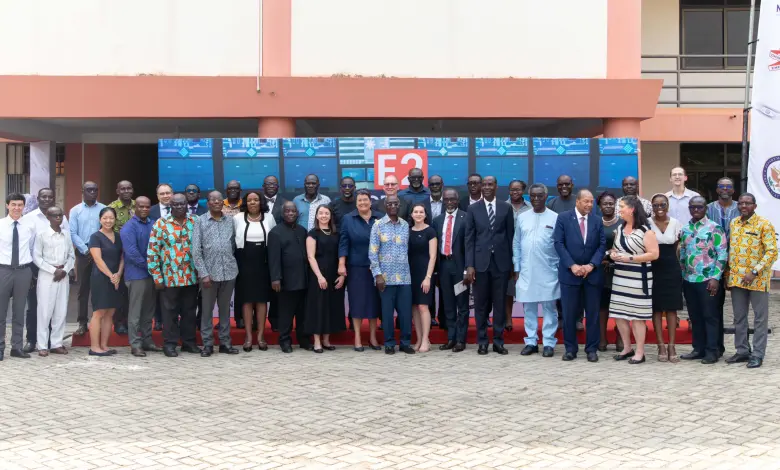The US Embassy has inaugurated a simulator training centre at the School of Nuclear and Allied Sciences (SNAS) in Accra to advance Ghana’s nuclear power development and strengthen its position as a leader in sustainable energy solutions.
The E2 Centre, commissioned on Thursday, 16 January is the first of its kind in Sub-Saharan Africa, with state-of-the-art computer modelling within a NuScale 12-module Small Modular Reactor (SMR) control room.
The E2 Centre is aimed at serving as a regional training hub to equip professionals with the skills and expertise required for the safe and secure use of nuclear power.
Speaking at the event, the US Ambassador to Ghana, Virginia E. Palmer, stated that the simulator training centre was the beginning of Ghana’s nuclear energy journey.
She expressed optimism that the facility would contribute to job creation, support mineral processing and manufacturing, and drive economic growth in Ghana and the wider African region.
“By investing in nuclear technology, we are not only diversifying energy sources but also contributing to a cleaner, more sustainable future.”
“The United States is proud to partner with Ghana on this nuclear energy journey, a partnership built on mutual benefit, knowledge sharing, and a long-term commitment,” she said.
She also emphasised the benefits of the SMR technology, describing it as a cutting-edge innovation in nuclear energy that offered a safer, scalable, and cost-effective alternative to traditional reactors.
Virginia E. Palmer was joined by the Chief Director of the Ministry of Environment, Science and Technology, Patrick Nomo, management of the Nuclear Power Institute of the Ghana Atomic Energy Commission (GAEC), and guests from across Ghana’s academic, energy, and government sectors to launch the Centre officially.
The E2 Centre is supported by the Foundational Infrastructure for Responsible Use of Small Modular Reactor Technology (FIRST) capacity-building programme in partnership with the International Science and Technology Centre and NuScale Power.
